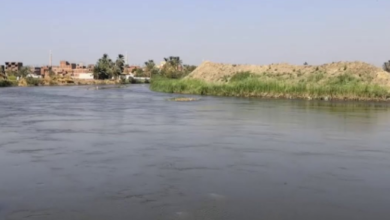It’s nearly eight months now since a popular uprising toppled former President Hosni Mubarak, but Monday’s newspapers show that some of the most hated practices of his rule still exist.
State-run newspapers highlighted on their front pages statements made by Egypt’s de facto leader, Field Marshal Hussein Tantawi. (State-owned papers were always the mouthpiece of the regime, allocating front pages for any statements by the ruler of the nation.)
“The Marshal: Egypt will cross to the state of stability,” reads the headline of Egypt’s flagship Al-Ahram. Al-Gomhurriya, another state-run paper, changed the wording to create a headline that reads: “We will cross Egypt to the bank of safety.”
State-run Al-Akhbar chose a headline that focuses on Tantawi’s call to support the military .
These headlines come after Tantawi's Sunday visit to Fayoum Governorate, south of the capital, to inaugurate three factories as part of celebrations for the 38th anniversary of Egypt's victory in the 6 October War.
Egyptians will easily recall that Mubarak was addicted to inaugurating projects the economic implications of which people knew nothing about.
Furthermore, it was always a chance for people to get Mubarak’s reactions to certain issues – after periods of silence – in the ceremonies surrounding the inaugurations.
It was the same with the top general.
Tantawi, having kept silent for months, came to justify his testimony in the Mubarak trial on 24 September, which was given under a total media blackout.
He denied that the military received orders to shoot protesters during the 18-day uprising in which more than 800 people were killed.
This was Tantawi's first official visit to a state-owned company. It came six days after Tantawi was seen walking plain-clothed in downtown Cairo, agitating activists who claim he wants to prove his suitability for the presidency and his aspiration for a political role after the transitional period.
Al-Ahram quotes Tantawi as saying that his testimony in Mubarak’s trial came from "a sincere man and a soldier of 40 years."
Al-Akhbar allocates a whole page to Tantawi’s activities, quoting him as saying that the Supreme Council of Armed Forces (SCAF) is being patient about what he called “attacks” against it.
The rest of the coverage simply recalls what Mubarak used to do.
Tantawi ordered governmental officials to keep in mind the needs of the underprivileged. He directed officials to ideas that would raise production in Egypt. Meanwhile Al-Gomhurriya quotes him as warning Egyptians of the threat of those raping the nation. Lastly, Al-Ahram quotes him as differentiating between those who are only “speaking” and those who are “working.”
Tantawi kept silent, however, over the ambiguous political situation following Saturday’s meeting that gathered the military’s Chief of Staff Sami Anan with representatives of 15 of 50 of Egypt's political parties. In the meeting attendees allegedly agreed on a timetable for the troubled transitional period.
And as for Egypt’s weak prime minster Essam Sharaf, who accompanied Tantawi on the Fayoum visit, he was absent – for no specific reason – from Anan’s meeting with political parties.
However, Al-Ahram's front page says that the government will convene on Monday to discuss the amendments of the electoral law proposed by Anan.
As it used to do during Mubarak’s rule, the state-run paper overlooked the disagreements about regime policies, instead highlighting specific political forces that agreed on them.
On Saturday, SCAF agreed on amending the parliamentary elections law, which it had drafted unilaterally, in order to allow political parties to field candidates both on party lists and as individuals.
The paper says that the Muslim Brotherhood's Freedom and Justice Party and liberal Wafd Party welcomed the military's amendments and its proposed timetable for handing over power.
However, privately owned Al-Shorouk sees the whole issue from a different perspective, saying Anan’s meeting caused deep divisions among political parties.
The paper says the Islamist Wasat Party said that the timetable proposed by the SCAF is not clear. Other political parties accused the SCAF of not having any positive reactions towards their demands, which include repealing the Emergency Law and placing a legal restriction on former members of the National Democratic Party (NDP) running for political office for a number of years.
Egypt's papers:
Al-Ahram: Daily, state-run, largest distribution in Egypt
Al-Akhbar: Daily, state-run, second to Al-Ahram in institutional size
Al-Gomhurriya: Daily, state-run
Rose al-Youssef: Daily, state-run
Al-Dostour: Daily, privately owned
Al-Shorouk: Daily, privately owned
Al-Wafd: Daily, published by the liberal Wafd Party
Youm7: Daily, privately owned
Al-Tahrir: Daily, privately owned
Sawt al-Umma: Weekly, privately owned
Al-Arabi: Weekly, published by the Arab Nasserist party




